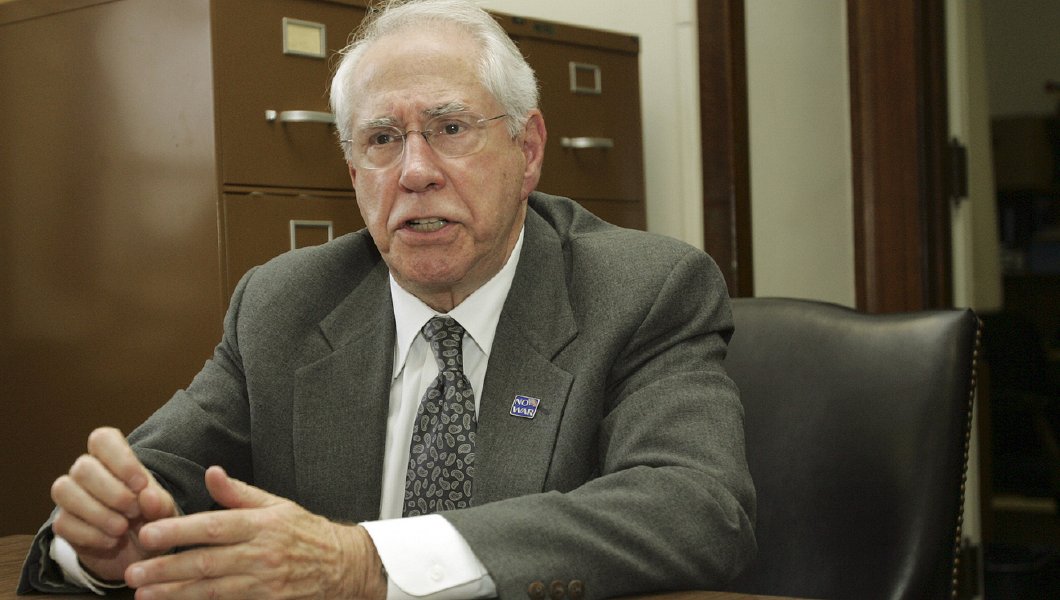An Act establishing legislative procedures and an administrative agency to administer the legislative procedures on behalf of the citizens of the United States so they can deliberately exercise their legislative powers; and adding to the Federal Code.
Be It Enacted By The Citizens Of The United States:
Section 1. TITLE
This act shall be known and may be cited as the Citizens Legislative Procedures Act.
Section 2. PREAMBLE
We, the People of the United States, inherently possess the sovereign authority and power to govern ourselves. We asserted this power in our Declaration of Independence and in the ratification of our Constitution. We, the People, choose to participate as lawmakers in all government jurisdictions.
THEREFORE, We, the People, sanction the election conducted by the nonprofit corporation Philadelphia II and establish the number of votes necessary for the enactment of the National Citizens Initiative for Democracy at the majority of votes cast in the most recent presidential election, permitting us to exercise our legislative powers by initiative, concurrently with the legislative powers we delegate to our elected representatives in all government jurisdictions.
AND THEREFORE, We, the People, enact this Citizens Legislative Procedures Act, establishing a “Legislature of the People” and providing for its legislative procedures and their administration by a Citizens Trust on our behalf.
Section 3. LEGISLATIVE PROCEDURES
The Citizens Trust (hereinafter “Trust”) shall qualify initiatives chronologically, limiting one initiative per week for each government jurisdiction. The Trust shall take advantage of contemporary technology in implementing these procedures so as to facilitate as much as possible the citizens’ legislative role. The essential elements of the initiative process include, but are not limited to, the following:
A. Sponsors.
Only citizens of the United States who are natural persons registered to vote may introduce and sponsor an initiative. The Sponsors shall be identified on the initiative, on any petition, and on any qualifying poll. The Trust may grant special chronological consideration to initiatives introduced by the Presidentor by the board of directors of Philadelphia II.
B. Form.
An initiative shall comprise a Title, a Summary, a Preamble that states the subject and purposes for the initiative, and the complete text of the initiative.
C. Content.
An initiative shall pertain to matters of public policy relevant to the government jurisdiction to which it is applicable. The Sponsors shall determine the initial wording of the initiative. The Title and Summary shall be subject to approval by the Trust.
D. Subject.
An initiative shall address only one subject but may include related or mutually dependent parts.
E. Word Limit.
An initiative shall contain no more than five thousand words, exclusive of the Title, Preamble, Summary, references, definitions and language that quotes existing law.
F. Qualification.
Following approval of the Title and Summary by the Trust, an initiative may qualify for election in the relevant government jurisdiction by any one of the following methods:
1) Citizen Petition.
An initiative shall qualify for election if it is the subject of a petition signed manually or electronically by a number of registered voters, to be specified by the Trust, within the relevant government jurisdiction. The time period allotted to gather qualifying petition signatures shall be at least one year and not more than two years, beginning on the date the first signature is collected.
2) Public Opinion Poll of Citizens.
An initiative shall qualify for election when the subject matter described in the title and summary is approved by a majority of respondents in a public opinion poll. To qualify by this method, the polling plan, including the number of respondents, the methodology and the entity that will conduct the poll, shall be approved in advance by the Trust.
3) Legislative Resolution.
An initiative shall qualify for election if a resolution, the wording of which is identical to the initiative as submitted by its sponsor, is passed by a simple majority in the legislative body of the relevant government jurisdiction.
G. Communications.
Once an initiative is qualified, the title, summary, preamble, text and the identity of its sponsors shall be published on an Internet website and in various mediums of communication. Additional information: the Hearing Record; the Deliberative Committee report; the result of the Legislative Advisory Vote; statements prepared by the Sponsors, other proponents and opponents; and a balanced analysis prepared by the Trust of the pros and cons of the initiative, including its costs and benefits and societal, environmental, and economic implications, shall be added to the publication of this initiative as this information becomes available.
H. Public Hearing.
After an initiative qualifies for election, the Trust shall appoint a Hearing Officer to conduct a public hearing. Representatives of the initiative’s Sponsors and representatives of the legislative body of the relevant government jurisdiction shall participate in the hearing in accordance with policies and procedures established by the Trust. Testimony on the initiative by proponents, opponents and experts shall be solicited, and their testimonies shall be published as the Hearing Record.
I. Deliberative Committee.
After the public hearings the Trust shall convene a Deliberative Committee demographically representing the government jurisdiction to review each initiative. The Deliberative Committee shall be drawn at random from a pool of citizens previously developed and maintained by the Trust. Each member of the Deliberative Committee shall be fairly compensated for time spent and expenses incurred in performance of Committee duties. The Trust shall provide technical support and such additional resources as are necessary for the effective discharge of the Committee’s duties. The Deliberative Committee shall review the Hearing Record, secure expert advice, deliberate the merits of the initiative, and prepare a written report of its deliberations and recommendations. By two-thirds vote, the Deliberative Committee may alter the Title, Summary, Preamble or text of the initiative, provided that the changes are consistent with the stated purposes of the initiative.
J. Legislative Advisory Vote.
Each initiative, together with its Hearing Record and report of the Deliberative Committee, shall be transmitted to the legislative body of the relevant government jurisdiction. The legislative body shall conduct a public vote of its members, recording the yeas and nays on the initiative, within 90 days after receipt thereof. The vote of the legislative body is non-binding, serving only as an advisory to the citizens.
K. Promotional Communications.
Any communication, regardless of the medium through which conveyed, that promotes or opposes an initiative shall conspicuously identify the person(s) responsible for that communication, in a manner specified by the Trust.
L. Campaign Financing.
Only United States citizens may contribute funds, services or property in support of or in opposition to an initiative. Contributions from corporations including, but not limited to, such incorporated entities as industry groups, labor unions, political parties, political action committees, organized religious bodies and associations are specifically prohibited. Such entities are also prohibited from coercing or inducing employees, clients, customers, members, or any other associated persons to support or oppose an initiative. Violation of these prohibitions is a felony punishable by not more than one year in prison, or a fine not to exceed One Hundred Thousand Dollars, or both, per instance, applied to each person found guilty of the violation.
M. Financial Disclosure.
The Trust shall establish financial reporting requirements applicable to initiative sponsors, proponents and opponents. The Trust shall make all financial reports available to the public immediately upon its receipt thereof. Failure of sponsors, proponents or opponents to comply with these reporting requirements shall be a felony punishable by not more than one year in prison or a fine not to exceed One Hundred Thousand Dollars, or both, per instance, applied to each person found guilty of the violation.
N. Election.
Upon completion of the Legislative Advisory Vote, or 90 days after the initiative has been delivered to the legislative body of the relevant government jurisdiction, whichever occurs first, the Trust shall publish a schedule for the election of the initiative and shall conduct an election in accordance with the published schedule. The Trust shall conduct all initiative elections employing the most effective and secure technology. The Trust shalladminister an election twenty-four hours a day for seven days. The Trust shall make voting on initiatives as convenient as possible for citizens.
O. Enactment.
An initiative that creates or modifies a constitution or charter becomes law when it is approved by more than one-half the registered voters of the relevant government jurisdiction in each of two successive elections. If the amendment is approved in the first election, a second ratification election shall occur no earlier than six months and no later than a year after the first election. An initiative that enacts, modifies or repeals a statute becomes the law when approved by more than half the registered voters of the relevant government jurisdiction who participate in the election.
P. Effective Date.
The effective date of an initiative, if not otherwise specified in the initiative, shall be forty-five days after certification of its enactment by the Trust.
Q. Judicial Review.
No court shall have the power to enjoin any initiative election except on grounds of fraud. After a statutory initiative has been enacted into law, courts, when requested, may determine the constitutionality of the law.
R. Withdrawal.
The Sponsors of an initiative may withdraw an initiative from further consideration and processing at any time prior to a deadline established by the Trust.
Section 4. CITIZENS TRUST
The Citizens Trust shall administer the Citizens Legislative Procedures Act. The Trust shall be governed by a Board of Trustees and a Director. The Trust shall take advantage of contemporary technology in carrying out its mission. The activities of the Trust shall be transparent to the public.
A. Mission.
The Trust shall impartially administer the Citizens Legislative Procedures Act, so as to facilitate the exercise of the citizens’ legislative role. The Trust shall ensure that citizens may file, qualify and vote on initiatives relevant to any government jurisdiction at any time and from any location. The Trust shall neither influence the outcome of any initiative, nor alter the substance of any initiative, except as specified in Section 3.I. The Trust may promulgate regulations to more fully meet its responsibilities under this Act.
B. Board of Trustees.
The Board of Trustees shall establish policies for and perform oversight of the Trust.
1) Membership.
The Board of Trustees shall be composed of 15 members appointed for an initial term by the board of directors of Philadelphia II. The President of the United States shall appoint subsequent members.
2) Term of Office.
Members of the Board of Trustees shall serve a single six-year term except for those initially selected who will be divided into three classes serving two, four and six years respectively.
3) Removal Of Trustees.
Any member of the Board of Trustees shall be removed from office upon a three-fourths vote of the full membership of the Board of Trustees.
4) Vacancies.
Vacancies on the Board of Trustees shall be filled by the President.
5) Meetings.
The Board of Trustees shall meet at least annually and at such other times and in such places, as it deems appropriate to conduct its business. All meetings of the Board shall be publicized in advance and open to the public, except as required by law. The Trust shall promptly publish the minutes and audiovisual recordings of all meetings of the Board, except as required by law.
C. Director.
The Director of the Trust is the Chief Executive Officer of the Citizens Trust and is responsible for its day-to-day management and operations, consistent with the policies of the Act and those established by the Board of Trustees.
1) Term of Office.
The Board of Director of Philadelphia II shall appoint the first Director. The Director shall serve for a term of six years and is limited to an additional six-year term. The Board of Trustees shall appoint all subsequent Directors.
2) Removal of Director.
The Director may be removed from office upon a two-thirds vote of the full membership of the Board of Trustees.
3) Vacancy.
A vacancy in the position of Director shall be filled by majority vote of the full membership of the Board of Trustees.
D. Oath or Affirmation of Office.
Each Member of the Board of Trustees, the Director and each employee of the Trust shall execute the following oath or affirmation of office as a condition of his or her service: “I, (name), (swear or affirm) that there is no authority superior to the people and that I will, to the best of my ability, defend and uphold the Constitution of the United States and the sovereign authority of the People to exercise their legislative power.”
E. Organization and Responsibilities.
The Trust shall organize itself to fulfill its mission and shall develop policies, procedures and regulations to register citizens for life as they become eligible to vote, to assist sponsors in preparing initiatives for qualification, to process initiatives, and to administer initiative elections. The Trust may select and contract for facilities and services, hire staff, and prescribe their duties and compensation. The Trust may also apply for and receive funds, and incur debt when necessary, and shall act in a responsible manner as an independent fiduciary agency.
1) Existing Law.
In fulfilling its responsibilities and performing its duties, the Trust shall comply with applicable laws and regulations of every government jurisdiction of the United States in which it operates that do not conflict with its mission defined in Section 4 A. Where laws are in conflict, this Citizens Legislative Procedures Act shall supersede.
2) Voter Registration.
The Trust shall develop requirements, facilities and procedures for universal lifetime voter registration of citizens of the United States, which shall be binding in elections conducted under the authority of the Citizens Amendment and this Act, in every government jurisdiction in which a voter is, or may become, a legal resident.
3) Research and Drafting Service.
The Trust shall establish and operate a legislative research and drafting service to assist citizens in preparing initiatives.
4) Deliberation Committees.
The Trust shall establish a pool of registered voters, in each government jurisdiction, qualified as having some level of civic knowledge, from which can be randomly drawn members for the Deliberative Committees that are convened for each initiative. Selected pools should demographically represent the government jurisdiction and be equally divided between men and women.
5) Communication.
The Trust shall establish the means, procedures, facilities and regulations to facilitate the communication of timely, comprehensive, balanced, and pertinent information on the subject matter of each initiative. This information shall be conveyed to the citizens of the relevant government jurisdiction by electronic means and various media, including radio, television, print and the Internet.
6) Hearings and Deliberative Committees.
The Trust shall organize a Hearing to receive testimony and shall convene a Deliberative Committee to deliberate on each qualified initiative. The Trust shall provide or arrange for professional Hearing Officers and Deliberation Facilitators, technical consultants and support staff and facilities, as needed, for the effective conduct of Hearings and Committee activities.
7) Election of Initiatives.
The Trust shall devise and administer policies and procedures to conduct elections of initiatives. In doing so, it shall take advantage of contemporary technology in developing procedures for voting and validating votes. Elections shall be conducted twenty-four hours a day for seven days. All such policies and procedures shall be neutral with respect to the content and outcome of the election.
F. Budgets.
Budgets covering all elements of the Trust’s operations and activities shall be prepared and published consistent with government practices and the public nature of the Trust’s responsibilities.
Section 5. APPROPRIATIONS
The appropriation of funds is hereby authorized from the Treasury of the United States, pursuant to Article I, Section 9 (7) of the Constitution of the United States, to enable the Trust to organize itself and begin the performance of its duties. Initially, a sum equal to the annual appropriation for the operation of Congress shall be appropriated for the operation of the Citizens Trust.
Section 6. SEVERABILITY
In the event that any of the provisions of this Act shall for any reason be held to be invalid as a result of judicial action, the remaining provisions of this Act shall be unimpaired.
———————-






You actually make it seem so easy with your presentation but I find this topic to be actually something
that I think I would never understand. It seems too complex and extremely
broad for me. I’m looking forward for your next post, I’ll
try to get the hang of it!
I’m not that much of a internet reader to be honest but
your sites really nice, keep it up! I’ll go ahead and bookmark your site to come back later.
Cheers
If placed on the skin to get a longer period of time these components could cause allergies and could ultimately cause some
considerable difficulties.
I absolutely love your blog and find the majority of your post’s to be precisely
what I’m looking for. Does one offer guest writers to write
content for you personally? I wouldn’t mind creating a post or elaborating
on a number of the subjects you write with regards to here.
Again, awesome web log!
Very nice post. I just stumbled upon your weblog and wanted to say that I have really enjoyed surfing around your blog
posts. In any case I will be subscribing to your rss feed and I hope you
write again very soon!
You made some decent points there. I checked on the net to find
out more about the issue and found most individuals will go along with your views on this web site.
Its like you read my mind! You seem to grasp a lot about this, such as you wrote the e-book
in it or something. I believe that you simply can do with a few % to power the message house
a little bit, but instead of that, this is great blog. An excellent read.
I will definitely be back.
This post will help the internet viewers for creating
new webpage or even a weblog from start to end.
Great post.
Another patient developed rhabodmyolysis — the hazardous breakdown of muscle, which can lead to kidney failure — as a result of taking various alternative weight-loss treatments, including chromium , guarana ,
and Garcinia Cambogia , all of which have been promoted in media
medicine even though medical literature has noted them to
be potentially toxic to muscle.
Fantastic beat ! I wish to apprentice at the same time as you amend your web site,
how could i subscribe for a weblog website? The account aided me a acceptable deal.
I have been a little bit acquainted of this your broadcast provided vibrant clear idea
I am actually delighted to glance at this weblog posts which contains tons of valuable data,
thanks for providing such statistics.
Appreciate the recommendation. Will try it out.
You’re so awesome! I don’t believe I’ve read through
something like this before. So nice to find
somebody with original thoughts on this subject matter.
Seriously.. thank you for starting this up. This web site is one thing that is required
on the internet, someone with some originality!
Counteract nightly dehydration with a lotion that is targeted, regardless
of what your skin type.
Can you tell us more about this? I’d care to find out
some additional information.
Hi there! I just wanted to ask if you ever have any problems with hackers?
My last blog (wordpress) was hacked and I ended up losing months of hard work
due to no back up. Do you have any solutions to stop hackers?
I love your blog.. very nice colors & theme. Did you create
this website yourself or did you hire someone to do it for you?
Plz answer back as I’m looking to create my own blog and would
like to find out where u got this from. cheers
My relatives always say that I am wasting my time here at net, except I know I am getting familiarity all the time by reading thes pleasant content.
Thank you, I’ve recently been looking for information approximately this subject for a while and yours is the
best I’ve discovered till now. However, what about the bottom line?
Are you certain in regards to the source?
Does your website have a contact page? I’m having a tough
time locating it but, I’d like to shoot you an e-mail. I’ve got some recommendations for your blog you might be interested in hearing.
Either way, great site and I look forward to seeing it grow over time.
Amazing things here. I’m very satisfied to see your article.
Thanks so much and I’m taking a look forward to touch you.
Will you please drop me a e-mail?
Your style is so unique compared to other folks I’ve
read stuff from. Many thanks for posting when you have the opportunity, Guess I will just book mark this site.
Be sure to take a look at our Roller Skates Customer’s Guide for more
fantastic info from the beginner and also beginner.
Jes MaHarry is the top marketing fashion jewelry developer
for the Sundance directory from Robert Redford.
Sicola’s Floral designer supplies a vast array of real-time blooming, non-flowering plants and also beautiful container gardens in Houston.
You could get Houston blossom distribution to any of these
facilities of greater discovering for any variety of celebrations.
[…] Gravel was most expansive about his idea to amend the Constitution. The idea is complicated and probably best understood in Gravel’s own words. The basic concept is simple, though: Gravel […]
[…] Gravel was most expansive about his idea to amend the Constitution. The idea is complicated and probably best understood in Gravel’s own words. The basic concept is simple, though: Gravel […]
[…] Gravel was most expansive about his idea to amend the Constitution. The idea is complicated and probably best understood in Gravel’s own words. The basic concept is simple, though: Gravel […]
[…] Gravel was most expansive about his idea to amend the Constitution. The idea is complicated and probably best understood in Gravel’s own words. The basic concept is simple, though: Gravel […]
[…] Gravel was most expansive about his idea to amend the Constitution. The idea is complicated and probably best understood in Gravel’s own words. The basic concept is simple, though: Gravel […]
[…] Gravel was most expansive about his idea to amend the Constitution. The idea is complicated and probably best understood in Gravel’s own words. The basic concept is simple, though: Gravel […]
This is interesting and informative post for me.